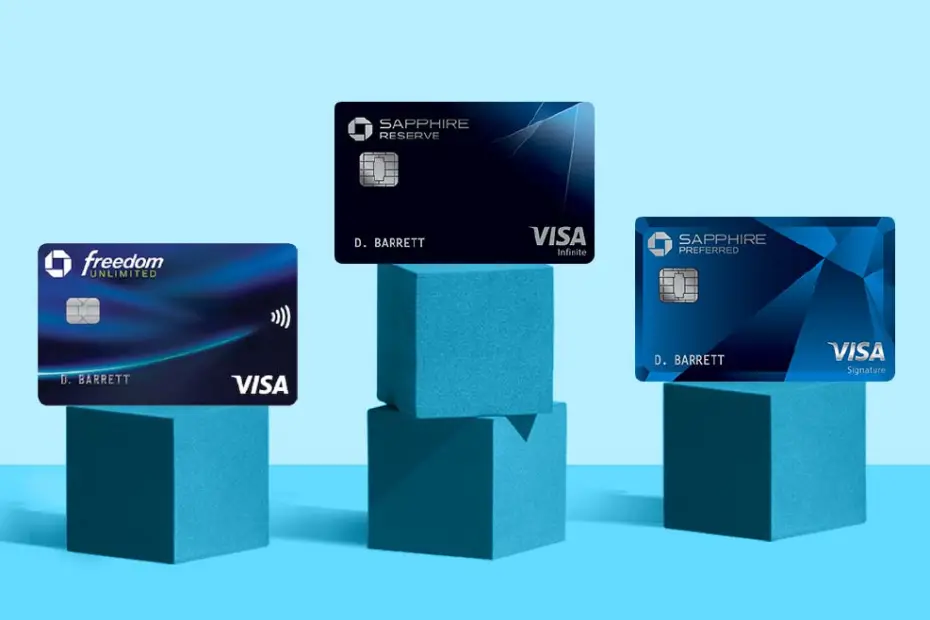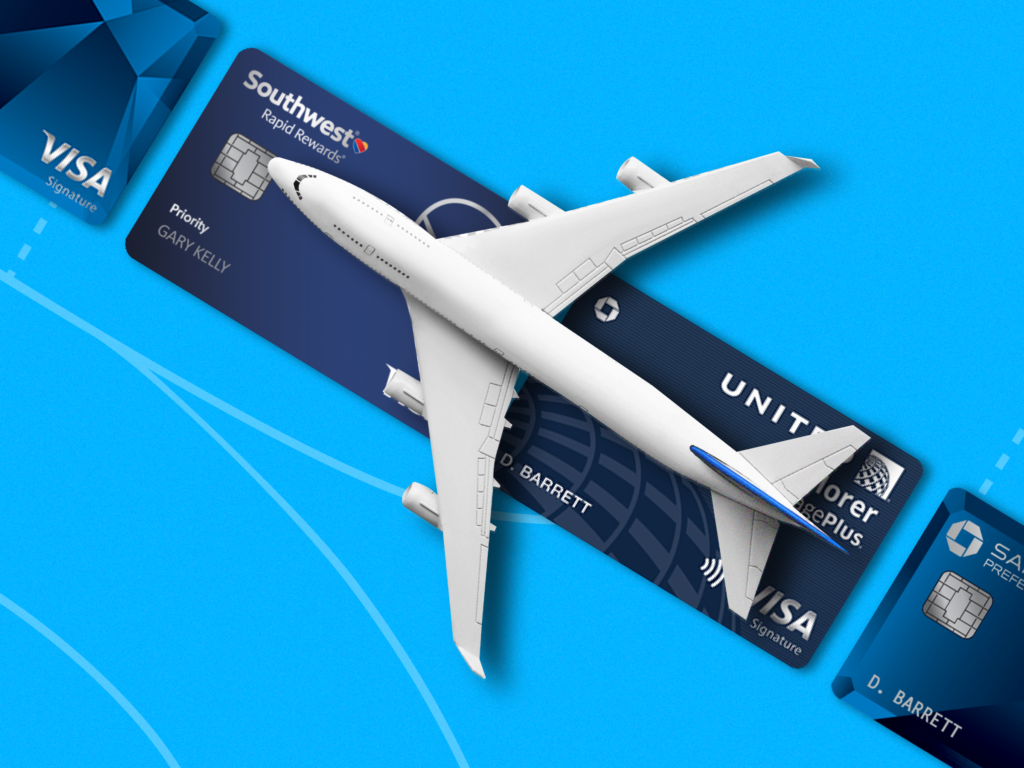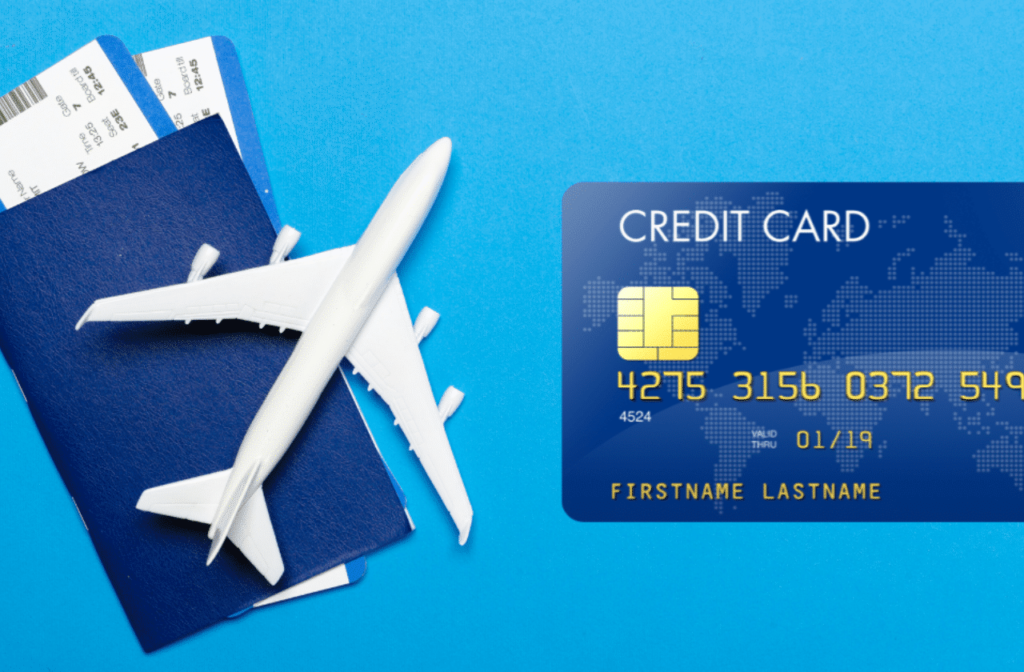Chase offers a variety of credit cards designed to help consumers maximize their travel rewards. Whether you’re a frequent flyer or just starting to accumulate points, Chase’s travel rewards credit cards provide flexibility, value, and great earning potential. In this article, we will dive into some of the best Chase travel credit cards, explore their features, and answer frequently asked questions to help you make an informed decision.
Key Takeaway:
Chase offers some of the best travel credit cards in the market, particularly through the Ultimate Rewards program. The Chase Sapphire Preferred® and Sapphire Reserve® are excellent for frequent travelers, while the Chase Freedom Unlimited® and Freedom Flex℠ provide strong rewards earning potential for those seeking additional cashback. Ultimately, the right card for you will depend on your spending patterns and travel preferences.
Why Chase Travel Credit Cards?

Chase is well-known for its array of travel rewards credit cards that can help cardholders earn points that are easy to redeem for travel purchases. The Chase Ultimate Rewards® program, which powers many of these cards, is one of the most flexible and valuable rewards systems available today. Whether you prefer booking flights, hotels, or experiences, the Ultimate Rewards program offers numerous ways to redeem your points.
But with so many options, choosing the right Chase travel card for your needs can be overwhelming. We’ve broken down the best options to help you find a card that maximizes your earning potential based on your travel goals.
Best Chase Travel Credit Cards for Earning Rewards
1. Chase Sapphire Preferred® Card
Overview:
The Chase Sapphire Preferred® Card is often considered one of the best travel credit cards for those looking to earn points on everyday purchases and redeem them for valuable travel rewards. The card comes with an attractive sign-up bonus and a great earning structure for dining, travel, and other purchases.
Key Benefits:
- Sign-up bonus: 60,000 points after you spend $4,000 in the first 3 months from account opening. This is worth $750 in travel through Chase Ultimate Rewards.
- Points earning rate: 2x points on travel and dining at restaurants & 1 point per dollar on all other purchases.
- Annual fee: $95.
- Point redemption: Points can be redeemed for 25% more value when booking travel through Chase Ultimate Rewards.
Why It’s Great for Earning Rewards:
The 2x points on travel and dining purchases make this card one of the best options for frequent travelers who also dine out often. The points are also incredibly valuable when redeemed through the Ultimate Rewards program, and the relatively low annual fee makes it accessible to a broad range of cardholders.
2. Chase Sapphire Reserve®
Overview:
For those who are willing to pay a higher annual fee for even more rewards and premium benefits, the Chase Sapphire Reserve® is a top-tier travel credit card. This card offers the highest earning rate on travel and dining and comes with luxurious perks that enhance the travel experience.
Key Benefits:
- Sign-up bonus: 60,000 points after you spend $4,000 in the first 3 months from account opening. This is worth $900 in travel through Chase Ultimate Rewards.
- Points earning rate: 3x points on travel immediately after earning your $300 travel credit, 3x points on dining, and 1 point per dollar on all other purchases.
- Annual fee: $550.
- Point redemption: Points can be redeemed for 50% more value when booking travel through Chase Ultimate Rewards.
- Travel credits & perks: $300 annual travel credit, access to Priority Pass lounges, and 1:1 point transfers to leading airline and hotel partners.
Why It’s Great for Earning Rewards:
The Chase Sapphire Reserve® earns 3x points on travel and dining, which is ideal for avid travelers who want to rack up points quickly. The 50% boost in point redemption value when booking travel through Chase Ultimate Rewards is an impressive perk that maximizes the value of each point. Additionally, access to travel perks like the Priority Pass lounge and travel credits make this card a favorite among frequent travelers.
3. Chase Freedom Unlimited®
Overview:
While not exclusively a travel card, the Chase Freedom Unlimited® is an excellent option for anyone looking to earn cashback that can be transferred into Ultimate Rewards points. The card offers a high cashback rate on a variety of purchases, making it a great everyday card for earning rewards.
Key Benefits:
- Sign-up bonus: $200 bonus after you spend $500 in the first 3 months from account opening.
- Points earning rate: 1.5% cash back on every purchase, 3% on dining and drugstore purchases, and 5% on travel purchased through Chase Ultimate Rewards.
- Annual fee: $0.
- Point redemption: Cashback earned can be converted into Ultimate Rewards points if you have another Chase Ultimate Rewards card, like the Sapphire Preferred® or Sapphire Reserve®.
Why It’s Great for Earning Rewards:
The Chase Freedom Unlimited® provides an excellent return on everyday spending with its 1.5% cash back on all purchases, plus an enhanced 5% on travel purchased through Chase. The best part is that you can convert your cash back into Ultimate Rewards points, which can then be transferred to travel partners for flights, hotels, and more. If you already hold another Chase Ultimate Rewards card, this card can significantly boost your rewards earning potential.
4. Chase Freedom Flex℠
Overview:
The Chase Freedom Flex℠ is a card designed for those who want to earn rotating quarterly bonus categories on everyday purchases. This card can be a great addition to any wallet for travelers who also want cashback in specific categories like dining, grocery stores, and other bonus areas.
Key Benefits:
- Sign-up bonus: $200 bonus after you spend $500 in the first 3 months.
- Points earning rate: 5% on rotating categories (up to $1,500 in combined purchases each quarter), 3% on dining and drugstore purchases, and 1% on all other purchases.
- Annual fee: $0.
- Point redemption: Points can be converted into Ultimate Rewards points for more valuable travel redemptions.
Why It’s Great for Earning Rewards:
The rotating 5% cashback categories offer an excellent way to earn high rewards in specific categories. While this card doesn’t offer the same travel perks as the Sapphire cards, its ability to earn 5% in certain categories makes it a great tool for supplementing your rewards-earning strategy.
5. Ink Business Preferred® Credit Card
Overview:
The Ink Business Preferred® Credit Card is ideal for small business owners who frequently travel or purchase business-related expenses. This card offers one of the best earning structures for business expenses and travel rewards, allowing you to rack up points quickly.
Key Benefits:
- Sign-up bonus: 100,000 points after you spend $15,000 in the first 3 months from account opening.
- Points earning rate: 3x points on the first $150,000 spent on travel, shipping, internet, cable, and phone services, and advertising purchases made with social media sites and search engines each account anniversary year.
- Annual fee: $95.
- Point redemption: Points are worth 25% more when redeemed through Chase Ultimate Rewards.
Why It’s Great for Earning Rewards:
With the ability to earn 3x points on several business-related categories, the Ink Business Preferred® Credit Card is an outstanding option for business owners looking to earn points while covering essential expenses. Its flexible point transfer options and valuable sign-up bonus make it one of the best travel credit cards for business owners.
Understanding the Value of Chase Ultimate Rewards Points

Chase Ultimate Rewards points are one of the most versatile and valuable loyalty programs available. Understanding how to maximize the value of these points can be a game-changer for frequent travelers. In this article, we will explore how you can earn, redeem, and transfer your Ultimate Rewards points for maximum value. Whether you’re booking flights, hotels, or experiences, there are numerous ways to use these points effectively.
How to Choose the Best Chase Travel Credit Card for Your Travel Goals
When choosing the best Chase travel credit card, it’s important to align your choice with your travel goals. Do you want to earn points on everyday spending? Are you looking for exclusive travel perks like airport lounge access and travel credits? This guide will walk you through the key factors to consider—such as sign-up bonuses, point earning categories, annual fees, and travel benefits—so you can find the card that best suits your needs.
The Top Chase Cards for Earning Points on Dining and Travel
Chase offers several cards that earn extra points on dining and travel, which are two common categories for avid travelers. In this article, we’ll discuss how Chase travel credit cards like the Sapphire Preferred® and Sapphire Reserve® can help you earn valuable points for travel, dining, and more. We will also explore how combining different Chase cards can maximize your points earnings.
How to Redeem Chase Ultimate Rewards Points for Travel
Once you’ve accumulated Chase Ultimate Rewards points, the next step is figuring out the best way to redeem them. This comprehensive guide will break down the different options available for redeeming your points, including booking through the Chase Travel Portal, transferring to airline and hotel partners, and using points for experiences or merchandise. By the end of this article, you’ll know how to get the most value out of your points.
Maximizing the Sign-Up Bonuses of Chase Travel Cards
One of the easiest ways to accumulate Chase Ultimate Rewards points quickly is through sign-up bonuses. Chase frequently offers generous bonus point offers for new cardholders who meet specific spending requirements within the first few months. In this guide, we’ll highlight the best Chase travel cards with lucrative sign-up bonuses and tips on how to meet the spending thresholds to maximize your rewards.
Benefits of Chase Travel Credit Cards for International Travelers
For frequent international travelers, a Chase travel credit card can offer various benefits, from no foreign transaction fees to enhanced point redemption opportunities. This article will explore how Chase travel cards, like the Sapphire Reserve®, can help you make the most of your travels abroad. We’ll also discuss other perks such as travel insurance, lounge access, and global acceptance.
Comparing the Chase Sapphire Preferred® and Chase Sapphire Reserve® Cards
The Chase Sapphire Preferred® and Chase Sapphire Reserve® are two of the most popular Chase travel credit cards. But how do you decide which one is right for you? In this article, we’ll compare both cards in detail, covering their point-earning rates, travel benefits, annual fees, and more. By the end, you’ll have a clear understanding of which card suits your travel style best.
Best Chase Travel Credit Cards for Small Business Owners
If you’re a small business owner who frequently travels, the Ink Business Preferred® Credit Card could be a great fit. This card offers a competitive points earning structure, a large sign-up bonus, and valuable benefits for business-related expenses. In this article, we’ll explore the best Chase cards for small business owners and how they can help you earn more points on business and travel spending.
The Pros and Cons of Chase Travel Credit Cards: Are They Worth It?
Before applying for a Chase travel credit card, it’s essential to understand both the advantages and potential drawbacks. In this article, we’ll dive deep into the pros and cons of Chase travel cards, including their earning potential, travel perks, annual fees, and flexibility. This guide will help you decide whether a Chase travel card is the right choice for you.
How to Maximize Your Chase Sapphire Reserve® Benefits
The Chase Sapphire Reserve® is a premium travel credit card that offers numerous benefits, but are you using them to their full potential? This article will explore all the ways you can make the most of the card’s features, from the $300 annual travel credit to 3x points on travel and dining. We’ll also provide tips on how to leverage the card’s travel insurance, luxury perks, and point transfer options for greater rewards.
Chase Travel Credit Cards for Frequent Flyers: A Complete Guide
For frequent flyers, earning points on flights and related purchases is crucial. Chase offers several travel credit cards that provide bonuses for air travel and airport purchases. In this article, we’ll discuss the best Chase cards for frequent flyers, how to earn points on flights, and how to redeem your points for maximum value through airline partners.
How to Transfer Chase Ultimate Rewards Points to Airline and Hotel Partners
One of the standout features of Chase Ultimate Rewards points is the ability to transfer them to various airline and hotel partners. This article will guide you through the process of transferring points to partners like United, Southwest, Hyatt, and Marriott. You’ll learn how to transfer points for flights, hotel stays, and more, and how to maximize the value of your points when booking travel through these partners.
Chase Travel Credit Cards for Beginners: A Starter Guide
If you’re new to travel rewards credit cards, Chase offers several options that are great for beginners. In this article, we’ll walk you through the basics of Chase travel credit cards, explain how to earn and redeem points, and highlight the best cards for those just starting to accumulate rewards. By the end of this guide, you’ll know which card to choose to kickstart your travel rewards journey.
How to Combine Chase Freedom Cards with Sapphire Cards for Maximum Rewards

Chase offers a variety of cards, including the Chase Freedom Unlimited® and Freedom Flex℠, that earn cashback that can be converted into Ultimate Rewards points. This article will explain how you can combine these cards with the Chase Sapphire Preferred® or Sapphire Reserve® to unlock even greater rewards earning potential and optimize your travel rewards strategy.
The Best Travel Insurance Benefits with Chase Travel Credit Cards
Chase travel credit cards often come with a variety of travel insurance benefits, which can be a huge asset during your trips. In this article, we’ll explore the different types of travel insurance benefits provided by Chase cards, including trip cancellation insurance, lost luggage coverage, and travel accident insurance. We’ll also highlight which Chase cards offer the most comprehensive protection.
A Deep Dive Into the Chase Ink Business Cash® Credit Card for Travel Rewards
The Chase Ink Business Cash® Credit Card may not be a traditional travel card, but it still offers excellent opportunities to earn points on business-related purchases. In this detailed guide, we’ll explore how this card works, what types of purchases earn the most points, and how business owners can use it to supplement their travel rewards earning strategy.
Chase Travel Credit Cards for Hotel Stays: Best Cards for Earning Points on Lodging
When it comes to travel, hotels are often one of the biggest expenses. This article will highlight the best Chase travel cards for earning points on hotel stays. We’ll also discuss how to maximize the value of these points by transferring them to hotel partners or using them through the Chase Travel Portal for discounted or upgraded bookings.
Read More:- What Are Business Expenses And How Can You Effectively Manage Them?
Conclusion
Chase offers a wide variety of credit cards designed to help users earn travel rewards. Whether you’re looking for a card with premium benefits, like the Chase Sapphire Reserve®, or a no-annual-fee option like the Chase Freedom Unlimited®, there is something for everyone. The flexibility of the Ultimate Rewards program allows for easy point transfers to airline and hotel partners, ensuring you get maximum value for your rewards.
When choosing a Chase travel card, consider factors like your spending habits, travel preferences, and whether you’re willing to pay a higher annual fee for premium perks. The best card for earning rewards depends on your specific needs and how you plan to use your points.
FAQs
1. How do Chase travel credit cards earn points?
Chase travel credit cards earn points primarily through purchases made with the card. The amount of points earned varies by category. For example, cards like the Chase Sapphire Preferred® earn 2x points on travel and dining, while others like the Ink Business Preferred® earn 3x points on select business-related expenses.
2. Can I transfer my Chase points to airline partners?
Yes, one of the great features of Chase Ultimate Rewards points is that you can transfer them to a variety of airline and hotel partners, including United, Southwest, British Airways, Hyatt, and Marriott, among others.
3. Are there any foreign transaction fees on Chase travel cards?
Most Chase travel credit cards, including the Chase Sapphire Preferred® and Sapphire Reserve®, do not charge foreign transaction fees. This makes them excellent options for international travelers.
4. What is the best way to redeem Chase Ultimate Rewards points?
The best way to redeem Chase Ultimate Rewards points is typically through the Chase Travel Portal, where points are worth more when booking travel. Additionally, transferring points to airline and hotel partners often provides the highest value.
5. How does the Chase Sapphire Preferred® Card compare to the Chase Sapphire Reserve®?
The Chase Sapphire Reserve® offers a higher points earning rate on travel and dining, along with additional perks like a $300 annual travel credit and access to luxury airport lounges. However, it also comes with a higher annual fee than the Chase Sapphire Preferred®.
6. Can I combine points from different Chase cards?
Yes, as long as the cards are linked to the same Ultimate Rewards account, you can combine points from multiple Chase cards, making it easier to earn and redeem points across different cards.
7. Is the Chase Freedom Unlimited® worth getting for travel rewards?
The Chase Freedom Unlimited® is a good card for earning cashback on everyday purchases, and when combined with another Chase Ultimate Rewards card, the cashback can be converted into points that are valuable for travel rewards.




